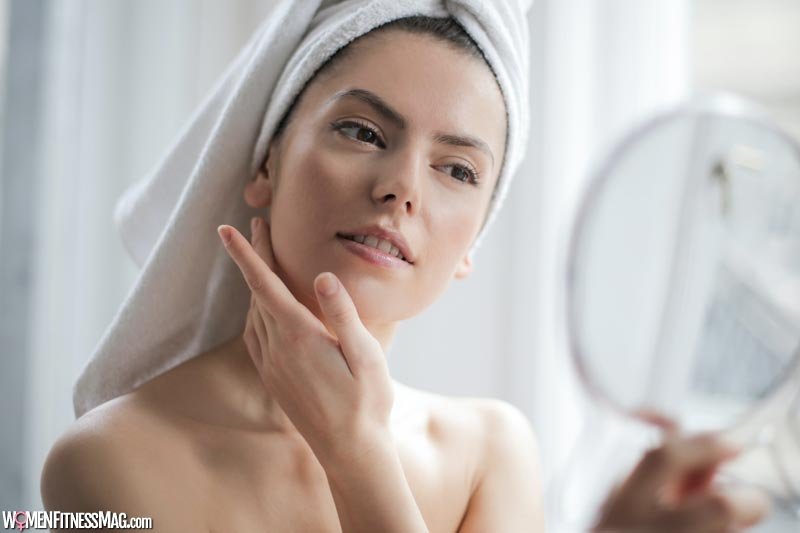Common Skin Conditions that Affect Women : Common skin conditions that affect women include acne, rosacea and Eczema. Acne can cause blackheads or whiteheads on the face. The severity of an acne outbreak can vary from small bumps to large cysts. There are many factors that may lead to this condition such as stress and hormones.
If you suffer from acne and it is affecting your school or work life, there are treatments available for this condition. Rosacea causes red flushing on the face. The skin may appear thin and spider veins can also be seen on the face of an individual who has this skin condition.
Acne
There are many factors that may lead to this condition such as stress and hormones. Acne forms when oil and dead skin cells clog the pores on the surface of your skin. In most cases, acne starts during puberty because of increased hormone production. The extra sebum gland activity leads to oily skin increasing the risk of acne. If you are suffering from other skin conditions that affect the face, such as seborrheic dermatitis or psoriasis, you may find your acne gets worse due to these other conditions making the skin more susceptible to breakouts.
Symptoms of Acne
Some common symptoms of acne include blackheads, whiteheads, red or inflamed pimples, and painful cysts. If you have severe acne that forms deep lumps under the skin it may cause scarring on the face.
If your acne is mild to moderate, over-the-counter topical medications can usually clear up your condition. Severe cases of acne require more aggressive treatment.
Treatment for Acne
There are many treatment options available for acne. One option is over the counter topical treatments that work to reduce oil production, help keep pores clear of dead skin cells, and reduce inflammation associated with acne breakouts. Your doctor may prescribe topical retinoids or oral antibiotics to treat more severe cases of acne. Oral contraceptives may help with hormonal acne. Your doctor might suggest a medicated wash that you can use as a toner after washing your face. If you have cystic acne, a cortisone injection or a laser therapy may be recommended to reduce the swelling and inflammation associated with these types of breakouts.
Eczema
This skin condition is characterized by areas of chronically dry, itchy skin that may crack and become red and irritated. The severity of eczema can vary from a minor skin irritation to a debilitating condition. There are several types of this disorder such as atopic dermatitis (the most common form), nummular dermatitis, contact dermatitis, stasis dermatitis (seen in the elderly), dyshidrotic eczema, and seborrheic eczema.
Symptoms of Eczema
Affected individuals often experience severely itchy skin that is dry, scaly or rough with redness and visible scratches. If you have eczema it can be present in different areas of your body such as the scalp, elbows and knees.
Treatment for Eczema
There is no cure for eczema but a variety of treatments may help control symptoms to minimize discomfort. Treatment options include antihistamines, topical steroids, moisturizing creams, ultraviolet light treatments, and oral antibiotics.
Rosacea
There are other skin conditions that may mimic rosacea such as acne or seborrheic dermatitis. You should consult a dermatologist if you have any concerns about your skin. In some cases, medications taken for blood pressure problems can cause rosacea symptoms therefore it is best to speak with a doctor if you take medication for the heart.
Symptoms of Rosacea
Some common symptoms include facial flushing, redness and visible blood vessels on the face. If you have type 2 rosacea your skin may appear normal at times but then become red with noticeable blood vessels when stimulated such as after you exercise or when you are out in the cold.
Treatment for Rosacea
There is no cure for rosacea but it can be treated with oral antibiotics, topical medications and laser treatments. Dermatologists often prescribe azelaic acid cream to treat mild cases of rosacea because it also interferes with cell metabolism which reduces redness associated with this skin condition.
Conclusion
There are many ways to treat acne, rosacea, and eczema. Dermatologists can prescribe topical medications such as antibiotics or topical retinoids to clear up these conditions. Severe cases of acne may require oral medications such as antibiotics. Dermatologist in Mahwah may recommend a medicated wash for patients with acne or rosacea that they can use to cleanse their skin. Dermatologists may also suggest ultraviolet light therapy for eczema and laser treatments for individuals who have rosacea.
Related Videos about Common Skin Conditions that Affect Women :
Skin Conditions – Causes, Symptoms and Treatment Options
Common skin conditions
Skin Diseases and Disorders
10 MOST COMMON SKIN DISORDERS(DISEASES) IN HUMANS
Skin Conditions You Don’t Want to Miss
Common Skin Conditions that Affect Women
10 skin diseases, skin diseases list with pictures, face skin diseases list with pictures, 10 skin diseases images, common skin problems, skin disorders, types of skin problems on face, dangerous skin diseases images,




